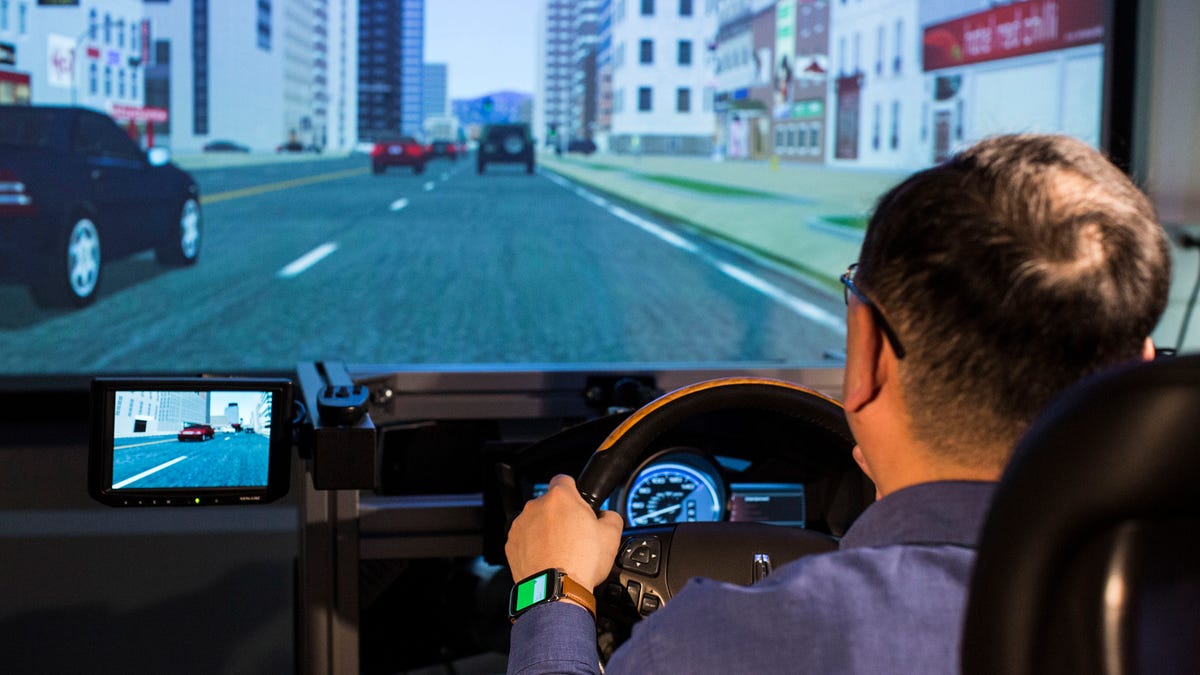Blue Oval launches program to make your Ford talk to your FitBit
Could your next car be the biggest wearable of all?

Wearable devices, ranging from simple pedometers to more advanced devices like the Apple Watch, have become incredibly commonplace things. So commonplace, in fact, that Ford is now investigating whether its cars should start taking advantage of their presence.
This week in Detroit, the company is announcing a new program to investigate what to do with the things. The new Automotive Wearables Experience lab in Dearborne, MI will primarily investigate ways for the company's cars to read health-related data from these wrist-borne sensors. Wearables with heart rate monitors can determine a user's alertness, even their stress levels, and communicate that data back to the car.
This could of course help create a car that could tell if the driver were asleep and sound a chime to wake them up, but this detection becomes even more crucial as we enter an era of autonomy. Self-driving cars, at least initially, won't be able to pilot themselves all the time. They will need to hand control back to a human driver at some point, and so detecting that driver's alertness becomes crucial. Having an on-body device doing the detection could provide more accurate detection.
But there are other opportunities. For example, Ford mentions using this data to automatically increase the space between cars on the highway should one driver start feeling stressed out. This could help reduce road rage incidents -- or, at the very least, make it harder for the other drivers to hear you shouting.

